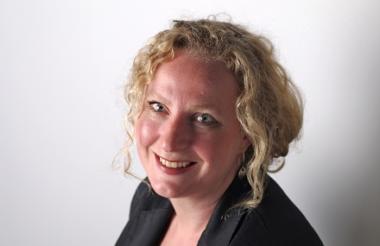Bond has criticised the Foreign, Commonwealth and Development Office (FCDO) for not being as transparent as its predecessor.
Stephanie Draper, chief executive, and Simon Starling, director of policy and advocacy, of Bond, were giving evidence to the Lords Committee on International Relations and Defence yesterday about merging the Foreign Commonwealth Office (FCO) and the Department for International Development (DFID).
The prime minister announced the two departments would merge to become the Foreign, Commonwealth and Development Office (FCDO) in 2020. Many charities criticised the plans and feared the merger would dilute the effectiveness of aid spending.
Since the merging of the two departments, transparency and accountability of the new department has declined, Draper said, and it is not clear where the official development assistance budget (ODA) is going.
She said: “It’s still not clear where the money [from the aid budget] is being spent.”
Lack of transparency and accountability
Draper told Peers: “We haven’t seen transparency on how the ODA budget is being spent, we’re hearing reports of NGOs not being able to speak about their work, and the data on the cuts has been very fragmented and inconsistent. The new department is not as transparent and accountable as DFID was.”
Starling agreed that the transparency of the department is lacking.
When asked if there had been any budgetary consequences of the merger, he said: “I’m not sure we’ll be in a position to answer that partly because of the lack of transparency around where the money is being spent, and there’s also a time lag in when the ODA official statistics come out so you don’t really see the detail for another year.”
Draper reminded peers the new department is yet to share its International Development Strategy.
“That suggests to me that it’s not at the heart of the new department,” she said.
As well as this, FCDO’s priorities are “shrinking” as they have gone from seven to three, she said.
‘Development priorities do seem to take a back seat’
Since the merger, “development priorities do seem to take a back seat when it comes to a number of immediate and pressing priorities,” Draper said.
She cited Ukraine as one example. This comes as several aid charities told the chancellor: “It isn’t right to fund one crisis response with money from another.”
Indeed, Starling said: “One of the challenges of the merger is how do you retain that long term structural inequality and poverty alleviation focus whilst at the same time there are so many urgent foreign policy issues and crises that are taking up senior leadership attention.”
Has the merger succeeded?
Draper said: “Culture merger was moving ahead and then it was thrown off by the aid cuts, so I think that really did undermine the bringing together of the new department.
“There have been lots of things that have diverted from bringing those two cultures together for the benefit of the UK and to the world.”
However, the FCDO is only 18 months old, so it is potentially too early on to see the real impact the merger has had, Starling and Peers agreed.
Not a cabinet level role minister
There is no longer a cabinet minister dedicated to international development, something Draper said creates problems.
Draper said: “We do think we really suffer from not having a cabinet-level minister for international development.”
She added: “The foreign secretary, with the best will in the world, has many responsibilities, she’s already secretary of state for equalities and Brexit, and has been focused on visiting countries that are about our relationship on security, technology or trade.
“That is an appropriate focus for a foreign secretary, but a minister for development would be visiting very different places.”
Starling said that the areas of the budget that have been ring-fenced seem to be the priorities of the foreign secretary, Liz Truss, as opposed to those of international development.
Editor's note - 31 March
This article has been corrected to reflect that the session took place in the House of Lords
Related articles












